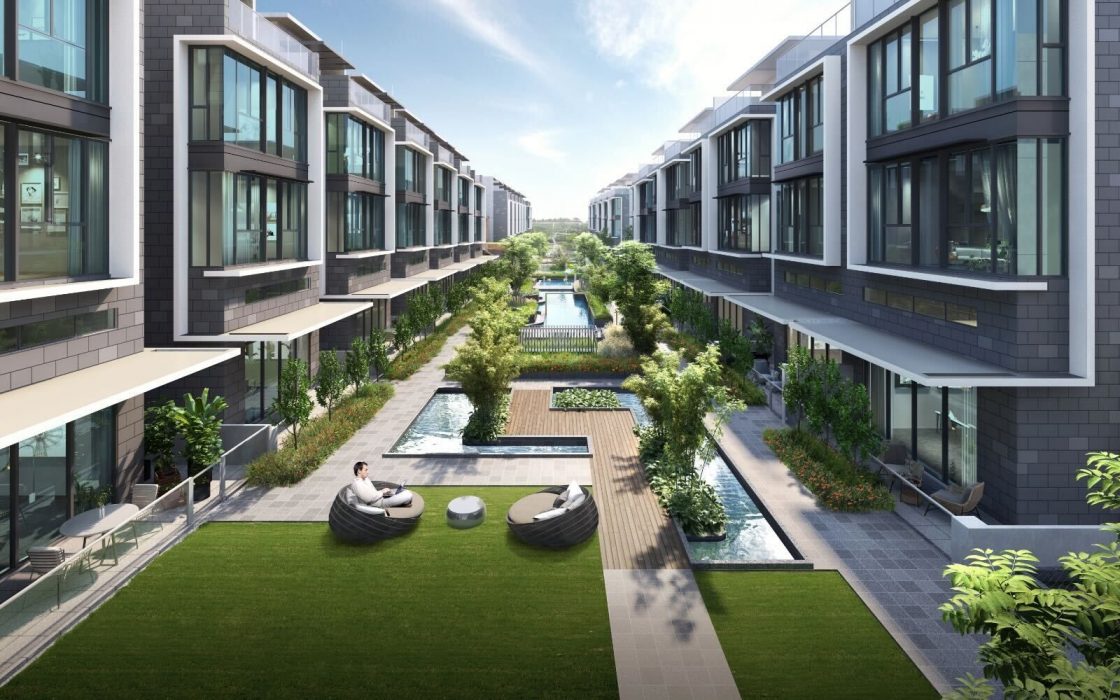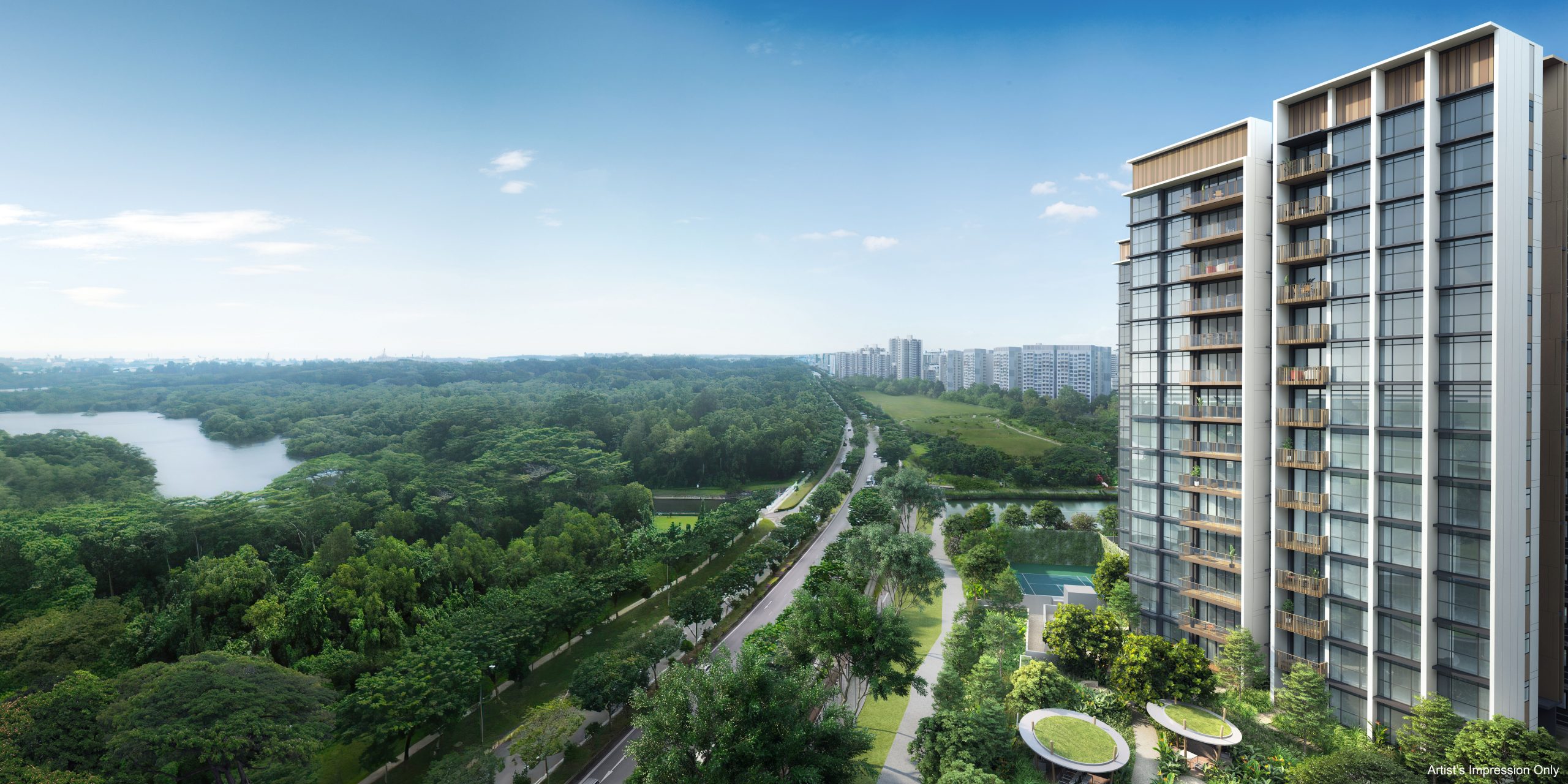URA has released the statistics for the private property market for Q1 2022. In general, prices of private residential properties have increased at a slower rate of 0.7% in the last quarter, compared to the 5.0% increase in Q4 2021. The slower price growth came on the back of last December’s cooling measures, which saw an increased ABSD rate for foreigners and property investors, and a reduced TDSR.
Price increase was driven by sales of landed properties and OCR condos
Breaking down by property type, landed property prices rose by 4.2% in Q1 2022, after a 3.9% increase in the previous quarter.
Tricia Song, Head of Research, Southeast Asia at CBRE attributes the price growth to the limited stock and sustained activity in the GCB market, as well as the launch of strata-landed project Belgravia Ace.
“[The project] observed strong demand at its launch from local first-time and multi-generational homebuyers and upgraders.”

Citing URA Realis caveats, she notes that as of today (22 April), the project has sold 74 of its 107 units at a median price of S$1,080 psf since its launch.
On the other hand, non-landed property prices dropped by 0.3% in Q1 2022, after a 5.3% increase in Q4 2021. Nicholas Mak, Head of Research and Consultancy at ERA, notes that this was the first drop in prices after seven consecutive quarters of expansion.
Among the three market segments, RCR condos saw the highest price drop of 2.7% in Q1 2022, compared to a 6.7% increase in the previous quarter. Likewise, prices of CCR condos decreased by 0.1%, compared to the 2.7% increase in the previous quarter. On the other hand, OCR condo prices increased by 2.2%, albeit lower than the 5.7% increase in the previous quarter.
“A key reason behind the resilient non-landed prices in the OCR could be that housing demand outgrew supply of private homes in the suburbs. The housing demand is fuelled by the rising prices of HDB resale flats. Some HDB flat owners are looking to upgrade to entry-level condominiums in the suburbs,” Mak explains.
“The number of unsold uncompleted private residential units in the OCR also fell to 3,890 units, which is the all-time lowest since such data was available.”
Rising rents as rental stock shrinks and constructions are delayed
Rents of private residential properties increased by 4.2% in Q1 2022, compared with the 2.6% increase in the previous quarter.
Analysts attribute the increase to a shrinking rental stock and a lack of new home supply. Those who were priced out of the market or waiting for their homes to be completed have also turned to renting in the meantime.
They also expect this rising trend to continue as borders reopen, increasing foreign rental demand.
Christine Sun, Senior Vice President of Research and Analytics at OrangeTee and Tie, also expects rising costs to increase rents further.
“Moving forward, inflation and rising costs such as higher maintenance charges, climbing interest rates and heavier property taxes may have a snowball effect on rents. Some landlords may pass the increased costs to their tenants, causing rents to climb further.”
Outlook in the coming months
Sun predicts that the rise in property prices will shift from being demand-driven to being cost-driven. This is due to rising costs brought by inflation, a higher cost of living, increasing land prices and wages, as well as higher costs of energy, raw materials and shipping costs resulting from the Russia-Ukraine war.
“Some sellers may pass the additional costs to consumers, leading to higher home prices in the coming months.”
Song also believes that demand will remain relatively subdued in this quarter as buyers hold back on property purchases due to the cooling measures.
“However, sales volumes could pick up substantially on the back of attractive new launches in specific months, and positive sentiment from increased capacity limits at show galleries and the full reopening of borders. Said developments could lift demand for new private homes going forward.

“In the short-term, the Singapore residential market could also benefit marginally from safe-haven flows amid heightened geopolitical uncertainty associated with the ongoing Russia-Ukraine conflict.”
Meanwhile, Mak believes that the impact of the latest round of cooling measures will be short term. He noted that after the 2018 cooling measures, the residential property price index had decreased for only six months before increasing again.
“In the past ten years, the Singapore government had been using essentially the same tools to try to cool the property market, such as increasing taxes and restricting property loans. Based on the historical residential property price trend, the more often the government repeats the same playbook, the less effective it becomes.
“Property prices, partly fuelled by an expanding economy and a healthy job market, will increase in the long run.”
What are your thoughts on the slower price growth and rising rents? Let us know in the comments section below or on our Facebook post.
If you found this article helpful, 99.co recommends Pine Grove and Dunman Road GLS sites: Analysing both condo sites and Lakeside Apartments and Lakepoint Condominium up for collective sale again: Analysing the Jurong/Lakeside neighbourhood.
Looking for a property? Find the home of your dreams today on Singapore’s fastest-growing property portal 99.co! If you would like to estimate the potential value of your property, check out 99.co’s Property Value Tool for free. Also, don’t forget to join our Facebook community page or Telegram chat group! Meanwhile, if you have an interesting property-related story to share with us, drop us a message here — and we’ll review it and get back to you.
The post 0.3% drop in condo prices, rising rents after last December’s cooling measures appeared first on 99.co.











